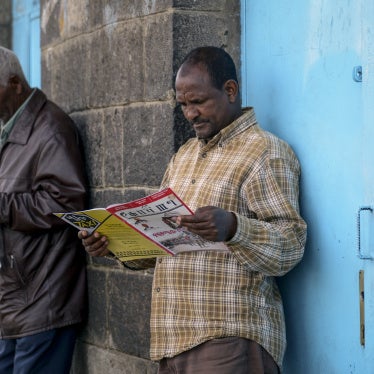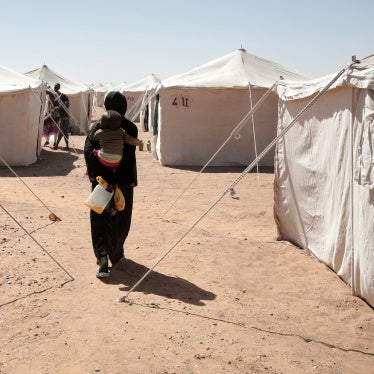Human Rights Watch regrets that the UPR indicates there has been no progress by the Equatorial Guinea government since its 2009 review. The many and serious concerns and valuable recommendations offered during this review closely correspond to recommendations that the government previously committed to address. This is the case on torture, arbitrary detention, rule of law [judicial independence], freedom of association, press freedom, anti-corruption and social and economic rights, among others.
We are deeply concerned that the government has not implemented its stated “decision not to tolerate torture and arbitrary detention.” Human Rights Watch has reported on the case of an Italian businessman unjustly imprisoned for over 20 months in an apparent attempt to protect President Obiang’s eldest son, who serves as the country’s second vice president for defense and security, from disclosures about corruption allegations. The prisoner, Roberto Berardi, has been severely beaten and flogged by guards, held for lengthy periods in solitary confinement in inhumane conditions, and repeatedly denied medical treatment and access to his lawyer or diplomatic representatives.
We are alarmed by information from Berardi’s family that in the ten-day period from September 8 to 17, prison authorities denied him food and water all but two days, putting his life at grave risk. They said that this mistreatment followed a visit to the prison by the ambassador of Equatorial Guinea to Italy, in which she reportedly rebuked Berardi for an open letter he published from jail.
We note that, following international attention to Berardi’s case and concerns about his health and safety, President Obiang publicly promised in April to promptly release him on humanitarian grounds but has not yet done so. We wish to underline the UPR recommendations by Italy to improve prison conditions, end ill-treatment and “consider releasing, on humanitarian grounds, inmates whose detention puts at risk their health and life.”
There is also the case of Agustín Esono Nsogo, a teacher who was imprisoned without charge for over a year, until February 2014, and was tortured on three occasions by being hung by his hands and feet and severely beaten to the point of losing his hearing in one ear. Cipriano Nguema Mba, a former military officer who was granted refugee status in Belgium in 2013, was abducted while visiting Nigeria in late 2013 and illegally returned to Equatorial Guinea, where he was secretly held by government authorities and tortured. He remains in custody. This is the second time Nguema was kidnapped from exile abroad.
We are concerned that the February 2014 moratorium on the death penalty, which was welcomed during the UPR on the understanding that it is a first step toward elimination of the death penalty, was only approved as a temporary measure. We regret that President Obiang stated in a July interview that he continues to support the death penalty . Only two weeks before announcing the moratorium, the government executed at least four people convicted of murder and as many as nine inmates in total, according to Amnesty International.
During this review, as with the 2009 review, the government agreed to establish an inclusive process to follow up the UPR recommendations. We underline the need to monitor implementation of the commitments undertaken by the government. We urge OHCHR to help the government launch such a process, ensure its integrity and independence and to regularly report on its progress.
We urge the government of Equatorial Guinea to swiftly fulfill its commitments to ratify the Optional Protocol to the Convention against Torture and Other Cruel, Inhuman or Degrading Treatment or Punishment and the Convention on the Rights of Persons with Disabilities, to accede to the Convention on the Prevention and Punishment of the Crime of Genocide, and to consider signing United Nations Convention against Corruption. We regret its continued failure to report to treaty bodies and that it once again rejected recommendations that it sign the Rome Statute.







